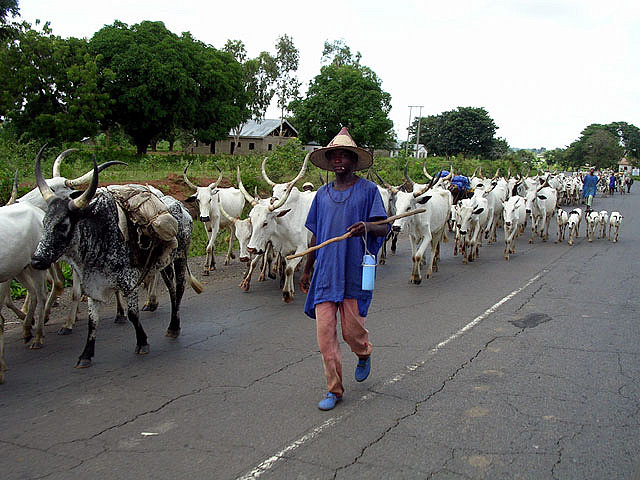
By Nnimmo Bassey
Violent conflicts have become so pervasive in Nigeria that one could be excused to say that they threaten to become the new normal.
Some years ago, no one could imagine that a Nigerian, child or adult, would become a suicide bomber. That thinking was loudly put to rest by the activities of Boko Haram, the group that erected and foisted a bomb-culture on our nation. Today, the horrendous conflicts between farmers and pastoralists must not be allowed to become another normal.
Conflicts in the oil fields, including third party interferences, oil thefts and acts of sabotage led to youths of the Niger Delta being labelled as restive whenever they made demands for ecological or social justice. That adjective gave the oil companies some cover over the poor handling and policing of their pipelines, equipment and other facilities. And then to add cream to the cake, it has become normal for oil companies to scream sabotage at the slightest hint of accidents in the oil fields.
Tango in Bonga
The only time a company like Shell did not plead sabotage was when they had the Bonga offshore spill of 20 December 2011. That spill occurred when the top-ranking oil company pumped thousands of barrels of crude oil into the Atlantic Ocean, off the coast of Ibeno, Akwa Ibom State, instead of pumping it into a waiting vessel.
By their admission, they pumped 40,000 barrels of oil into the sea before they knew something was amiss. That speaks volumes of the high standards they maintain in their operations! It may have taken long in coming, but we must applaud the Federal Government of Nigeria for finally instituting a suit against Shell for the damage done to the environment and on our people.
Grazing Times
An intriguing cycle of violence that has become worrisome is that of the so-called herdsmen wielding AK47s, brutally attacking, killing, kidnaping and raping citizens in their paths. The atrocious level of killings and destruction has led some to call these livestock blood cattle. Government action cannot be delayed on this matter.
While it is left to our security agencies to say if these attackers are truly herdsmen or a new band of terrorists, the issue of a Grazing Bill before the National Assembly has added more cause for concern to many Nigerians.
For those who may not know, the Grazing Bill seeks to acquire swaths of land across Nigeria, dispossess individuals and communities of their lands. The bill bars land owners from having access to these lands, territories and resources. Trespass by owners of the land could lead to terms of imprisonment and other penalties.
The Bill is a perfect move to legalise land grabbing and internal colonisation using the obnoxious Land Use Act as a cover. It is interesting that the Bill has now been said not to be on the tables of the National Assembly.
Phantom or not, the Bill remains a source for concern. Despite the denial of the existence of any Grazing Bill, we read that there are versions of Grazing Bill in the Hose of Representatives and that one is expected from the executive arm.
Meat, Hunger and Climate Change
While many have linked the herdsmen to the Fulani ethnic nationality, it is clear that owners of the cattle that have become the lightening rod of the peculiar violence rocking the nation in recent days may actually range beyond the Fulani.
One interpretation could be that what we are experiencing may be the manifestation of a primitive use of power by a blood-thirsty wealthy class using the poor as canon fodder against other poor and helpless citizens.
If this mayhem is not nipped, it threatens to set the nation ablaze. In a situation of rising suspicions, there is need to build bridges between our peoples, build a vanguard of the oppressed against the forces of division and annihilation and ensure that the poor among us are not used as foot soldiers in a proxy war they have no business fighting.
The rich owners of the cattle should set up ranches to support their enterprises. If the nomadic lifestyle is a way of life that cannot be compromised, the range of the movements should nevertheless be controlled. We hear much about value-addition as a way of building our agricultural industrial sector. Is it not time to move meat rather than cattle across the nation?
The world’s appetite for meat is having global impacts on the rate of deforestation and on global warming. Indeed, much of the food grown in the world today go to feeding animals rather than humans, thus entrenching hunger and malnutrition.
With so much blood shed so that cattle may roam roughshod over the land, it does make sense for us to rethink our meat production and consumption patterns.











